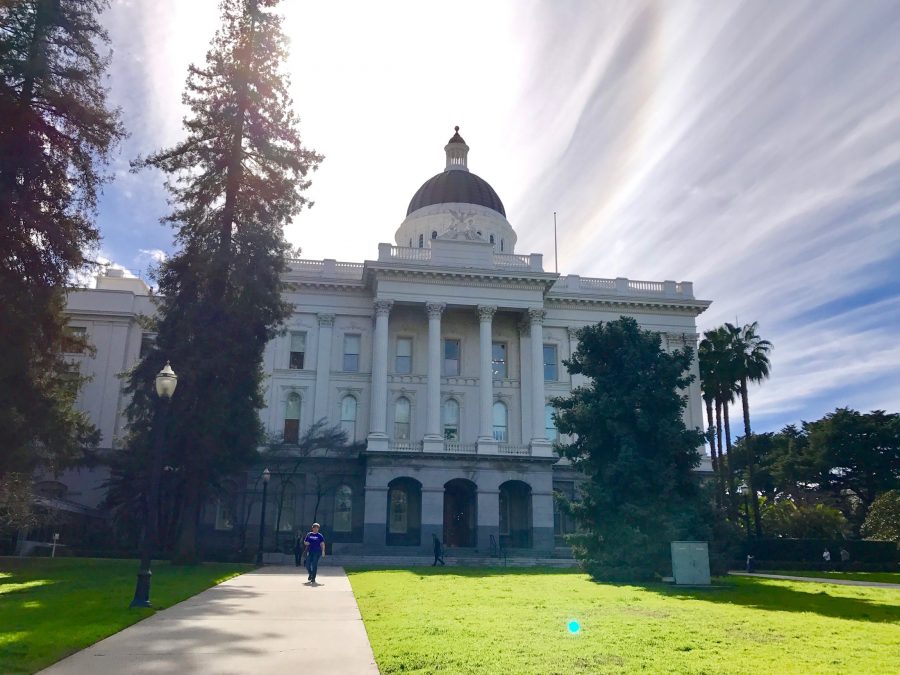With a possible tuition increase looming, Sacramento State Associated Students, Inc. has been working on a “game plan” to keep the cost of college affordable for all students.
In January, ASI President Patrick Dorsey took about 1,000 signatures and a formal letter opposing the proposed fee hike to the California State University’s Board of Trustees in Long Beach, where he was able to represent Sac State’s voice in explaining the negative impact that upping the cost of higher education may have on students.
Dorsey said that he and ASI board members, along with some other Sac State students, also got a chance to meet with CSU Trustee Jean Firstenberg last week when she was on campus, and talk with her about relevant issues, including the importance of college affordability.
But Dorsey, though he is hoping to do more outreach with CSU trustees before they vote in March, knows that even if they decide against the tuition increase, the buck doesn’t stop there.
“We are not having the funds necessary to really provide a quality, accessible education,” said Dorsey, adding that advocating at the Capitol to allocate more money in the budget for higher education is a top priority.
The ASI Office of Governmental Affairs (OGA), which serves as a political advocacy group on campus that both informs students of issues affecting them and lobbies on their behalf in the Capitol, has already been advocating against the tuition increase at the state level, said OGA Director Tim Sullivan.
Sullivan explained that tuition is a “two-prong issue” because, while an increase is ultimately the decision of the trustees, the money comes from the state budget.
“If the legislature isn’t allocating enough funds to go to the CSU system, then the board of trustees is really kind of put in a tough place to make a tough decision,” Sullivan said, adding that if the state increased its funding then the board could find other ways of picking up the tab rather than putting it back on students.
Even if a tuition hike is approved by the board of trustees in March, an increase from the state is an important focus long-term because the trustees can always rescind their vote if the May revision of the governor’s budget or its finalization in June indicates the CSU system will get more money in 2018.
OGA’s main focus in its advocacy is reaching out to offices that are in key positions to make its efforts more effective, said Sullivan, because it’s easier to talk with all the members of the higher education or finance committees than it is to meet with the entire state legislature.
Sullivan said OGA currently has talked to staffers in the offices of assemblymen Jim Frazier, D-Oakley, and Kevin McCarty, D-Sacramento, with meetings scheduled in the coming weeks. And, while the feedback they have already received is encouraging, persistence is essential.
“It’s just making sure that those positive responses result in … positive actions and positive policies on their part,” Sullivan said.
But he said that talking policy isn’t enough to get its agenda through and potent advocacy connects policy to people.
So, OGA goes to the Capitol to explain to legislators what a tuition increase would actually mean to students.
“That way it’s not some sort of abstract idea on a piece of paper,” Sullivan said. “It’s a real person and a real story that they’re hearing.”
And that is what makes OGA so unique, said OGA California State Student Association (CSSA) Liaison Travis Legault.
“Our office offers Capitol staff a perspective that governmental advocacy officers that work directly through administration can’t,” said Legault over email. “We can share our current experiences and struggles with them directly on a personal level, and empower others to do the same.”
Beside working to influence the state government, Dorsey and OGA said that there have been meetings with student groups to get ASI-sponsored events on the calendar, but nothing is concrete yet.
“We’re very happy to have a collaborative relationship with Students for a Quality Education’s chapter here at Sac State, and we’ve explored some options in putting together a public display of support against tuition increases and state funding shortfalls,” said Legault.
Legault also added that Dorsey, ASI Business Director Mia Kagianas and he have been working actively with CSSA, which has been opposed to all fee hikes in recent history, to make the organization “an effective student voice.”
Legault said that one of the main focuses of the California Higher Education Student Summit (CHESS) will be on how students can get their voices heard at the Capitol in regards to “how tuition increases will hurt them.”
The annual CSSA sponsored two-day event, which will be held in Sacramento in mid-March, is filled with workshops and informational sessions for students from all different majors and every campus in the CSU system to learn how to be their own advocates in the state legislature.
Legault also said they are planning a second CSSA advocacy event for April “to make sure that students are fresh on legislators’ minds when they get down the stretch of giving next year’s budget their stamp of approval.”






























































































































